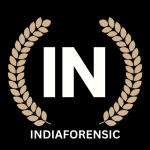Large corporate frauds is no more a new phenomenon for the finance world. In 2009, when India witnessed the Satyam, Forensic Audit profession was in a nascent stage. But with the changing time forensic auditing has evolved.
What is Forensic Audit ?
Forensic audit means studying financial transactions and gathering the information for use in courts. Forensic Auditors find financial statement fraud. They make forensic audit reports. These reports are usually shown in court as financial proof. Though many people use forensic audit as a substitute for forensic accounting, there is a significant difference.
Securities Exchange Board of India (SEBI) often hires forensic auditors to review the financial records of the listed companies. CBI, Serious Fraud Investigation Office (SFIO) also empanel the forensic auditors. There are different types of frauds investigated by the forensic auditors for these agencies. In the large scale crackdown on shell companies, auditors were asked to provide their observations on the financial health of the company.
Court cases requiring financial evidences may include identification of conflict of interest, commercial litigation, business valuation, insolvency and fraud.
Companies engage forensic auditors to answer specific questions. Bankers ask questions about trail of money, whereas government may ask restated financial statements. Also, the Forensic Auditors comment on the generally accepted accounting practices.
Unlike financial audits, there is no standard format for forensic audit report. Forensic Audits are extended versions of the internal audit. These investigative audits provide the answers to the specific questions. They provide sufficient evidence to be presented in courts.
Certified Forensic Accounting Professionals (CFAP) is one of the oldest professional courses in India. This course provides guidance in investigation of fraud cases. They are specialist in the forensic audits.
Curious case of IL&FS
Companies commit financial statement frauds to announce improved financial performance. IL&FS, which expressed its inability to pay off the debts, indulged into complicated scheme of financial statement fraud. Subsidiaries booked losses, but holding company ensured bonuses to top management. IL&FS failed to disclose the financial losses to the investors. This was a result of creative accounting.
Mathematical equations like J-score can help to identify the creative accounting, were not considered by the rating agencies.
Forensic auditors became famous when the government-nominated board took control of the troubled IL&FS. The observations they made were important for taking action against the people who did wrong things. Enforcement agencies arrested the people who caused the problems at IL&FS.
Auditors were also part of the scam. They didn’t just do audits; they also provided assurance services to the client.
The duty of forensic auditors is not restricted to quantification of personal gains to culprit. They are required to produce comprehensive trail of the funds to and from the business accounts of the culprits.
Certifications for Forensic Audit Profession
Forensic auditor requires knowledge of specific areas of investigative accounting and auditing techniques. These include court procedures, legal research and the ability to recognize criminal activity. A forensic accountant must understand more than just fraud. She also must understand insurance claims, insider trading, and legal contracts.
Indiaforensic Center of Studies offers certifications in the field of forensic audit. People who want to learn about this choose certifications based on what they are good at. For example, those from accounting firms might pick the Certified Forensic Accounting Professional course.
However, Chartered Accountants or certified public accountants can specialize in Stock Market Forensics. If you’re a member of a certain institute of certified professionals, you might not need to write all the papers.
Certifications are important for building investigation skills. Skilled professionals in accounting use these certifications to help them investigate financial statement frauds.
Forensic Audit Procedures
Forensic Auditors do more than just follow financial rules and check for mistakes inside a company. They try to figure out why someone did something. Knowing if someone meant to do something wrong is crucial to show that they did something bad in court. There are four main steps in every forensic accounting job.
- Plan the investigation – When we’re talking about forensic auditing, the first step is to really get what the client wants to know. The forensic auditor figures out the best way to investigate to find the answers. These answers might be about finding out how much fraud happened or who in the company was messing with the financial numbers.
In simple words, it’s super important for the forensic auditor to know exactly what the client is asking. Then, they make a plan to find the answers they’re looking for. These answers point out the people who were playing around with the company’s money records.
- Collecting Evidence – Forensic Auditors gather real proof of financial tricks. The proof needs to support the calculations of how much money was messed up using accounting records.
- Reporting – Forensic audit reports don’t have a fixed template, but they all aim for the same thing. A good report from a forensic audit shows what was found during the investigation and points to the proof that was gathered while doing it.
- Court Proceedings – Forensic auditors are like expert witnesses in court. When they’re in court, they have to explain why evidence is important. They also have to make complicated accounting stuff easy to understand.
To Summarise, a forensic audit is an exciting career path for those who are looking to go beyond the obvious.



